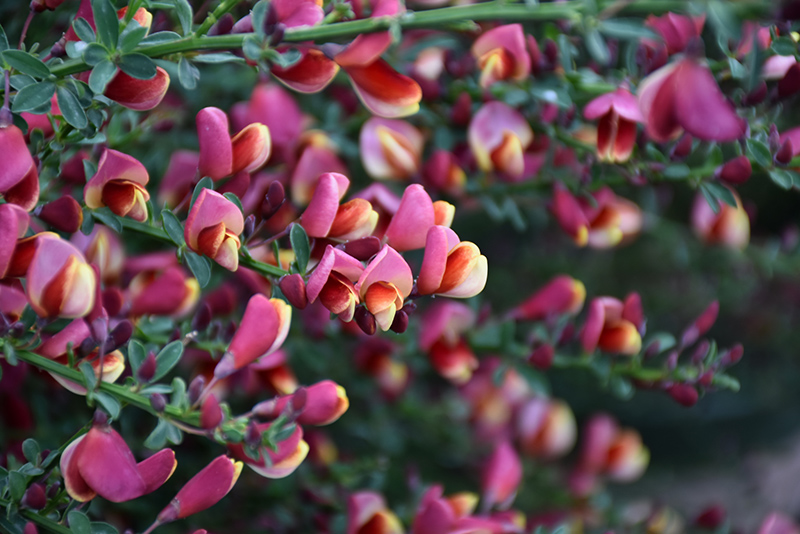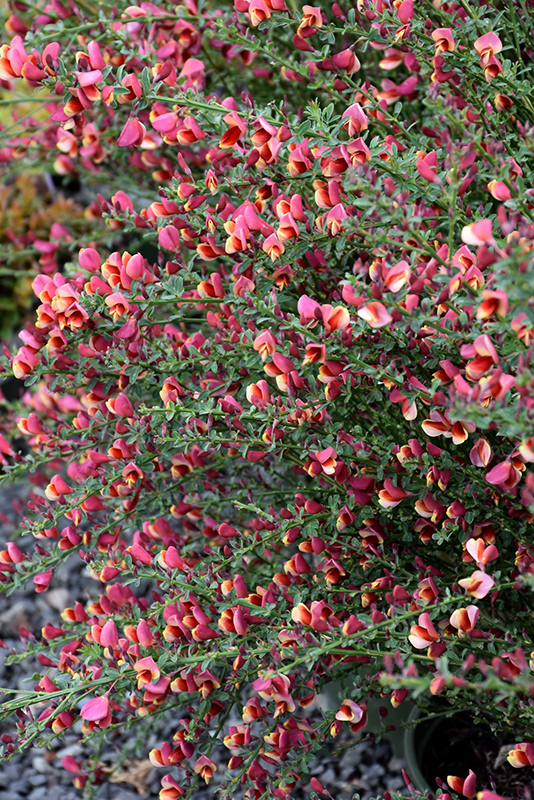Height: 5 feet
Spread: 5 feet
Sunlight:
![]()
Hardiness Zone: 4b
Other Names: Scotch Broom
Description:
A high quality flowering shrub for difficult places with dry, infertile soil, excellent for use in massing; springtime crimson flowers with lighter red keels and yellow edges on a densely branched, twiggy mound; best used in specific landscape situations
Ornamental Features
Burkwood's Broom is blanketed in stunning crimson pea-like flowers with lavender overtones and yellow edges along the branches from mid to late spring, which emerge from distinctive dark red flower buds. It has dark green deciduous foliage. The small oval leaves do not develop any appreciable fall color. The smooth bark and lime green branches add an interesting dimension to the landscape.
Landscape Attributes
Burkwood's Broom is an open multi-stemmed deciduous shrub with a shapely form and gracefully arching branches. Its relatively fine texture sets it apart from other landscape plants with less refined foliage.
This is a high maintenance shrub that will require regular care and upkeep, and is best pruned in late winter once the threat of extreme cold has passed. It has no significant negative characteristics.
Burkwood's Broom is recommended for the following landscape applications;
- Mass Planting
- Hedges/Screening
- General Garden Use
Planting & Growing
Burkwood's Broom will grow to be about 5 feet tall at maturity, with a spread of 5 feet. It tends to fill out right to the ground and therefore doesn't necessarily require facer plants in front, and is suitable for planting under power lines. It grows at a fast rate, and under ideal conditions can be expected to live for approximately 20 years.
This shrub should only be grown in full sunlight. It prefers dry to average moisture levels with very well-drained soil, and will often die in standing water. It is considered to be drought-tolerant, and thus makes an ideal choice for xeriscaping or the moisture-conserving landscape. It is particular about its soil conditions, with a strong preference for clay, alkaline soils, and is able to handle environmental salt. It is highly tolerant of urban pollution and will even thrive in inner city environments. This particular variety is an interspecific hybrid.



